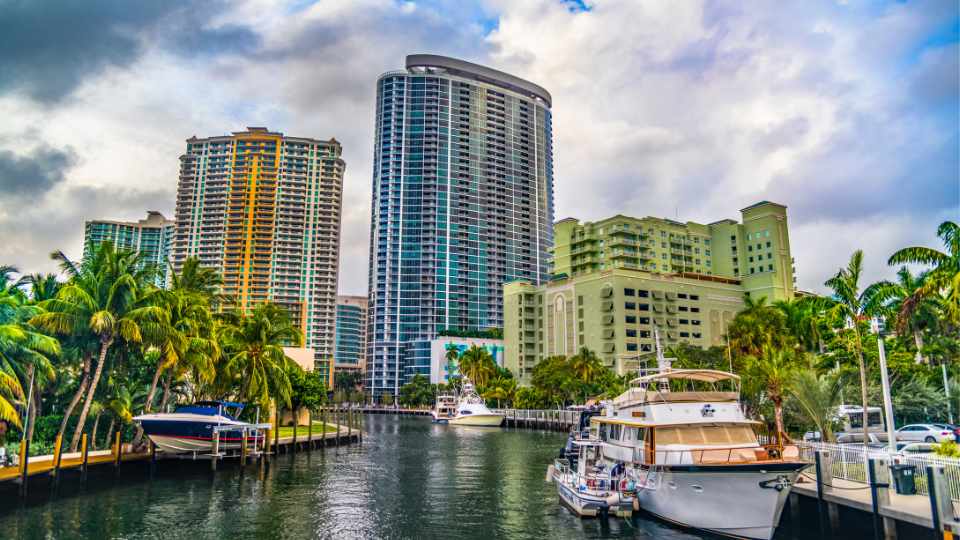
Fort Lauderdale, Florida nestles along the southeastern coast, beckoning with its subtropical climate and extensive network of canals. Known as the “Venice of America,” this city offers more than just picturesque waterways and boating opportunities. With an average year-round temperature of approximately 77 degrees Fahrenheit and about 246 sunny days, residents relish in the warm, breezy climate that typifies life in Fort Lauderdale.
The cost of living, particularly housing, is a significant consideration for those looking to make Fort Lauderdale their home. Average rents for a one-bedroom apartment hover around $2,000, positioning the city as one of the pricier rental markets. Yet, the overall quality of life, which includes proximity to beautiful beaches, outdoor activities, and sunny weather, often justifies the expense for many locals, who find the city’s offerings to be a worthwhile trade-off.
As one navigates through the decision of moving to Fort Lauderdale, understanding the nuances of its neighborhoods is crucial. From the family-friendly suburbs to the luxurious beachfront properties and vibrant cityscapes, Fort Lauderdale presents a diverse array of living experiences. Each neighborhood not only showcases its unique character but also reflects the vibrant, multicultural tapestry that Florida is known for.
Understanding Fort Lauderdale
Fort Lauderdale epitomizes the vibrancy and appeal of South Florida living with its beautiful beaches and a unique blend of history, culture, and climate.
Overview of Fort Lauderdale
Referred to as the “Venice of America” due to its expansive and intricate canal system, Fort Lauderdale is a coastal city in Florida known for its boating opportunities and stunning waterfront properties. It is a popular destination for both tourists and residents alike, offering a high quality of life with a blend of urban and beachfront experiences.
- Population: Approx. 180,000
- Region: South Florida
- Notable for: Beaches, boating, and shopping.
Climate and Weather
The climate in Fort Lauderdale is categorized as tropical rainforest. They enjoy long, warm, and sunny summers with abundant sunshine. The year-round average temperature is a comfortable 77 degrees Fahrenheit.
- Sunny Days: Around 246 per year
- Highs in Summer: 80s (Fahrenheit)
- Winter Weather: Mild with minimal temperature drops.
History and Culture
Fort Lauderdale’s history is rich with a past that intertwines with the Native American tribes, Spanish explorers, and the boom of the 20th-century American settlers. Originally a fort built during the Second Seminole War, the city has transformed into a diverse metropolis. It offers various cultural venues, like the historic Bonnet House and the Broward Center for the Performing Arts, celebrating both regional history and contemporary arts.
- Historical Landmarks: Includes the Stranahan House
- Arts and Culture: The city hosts annual events like the Fort Lauderdale International Boat Show.
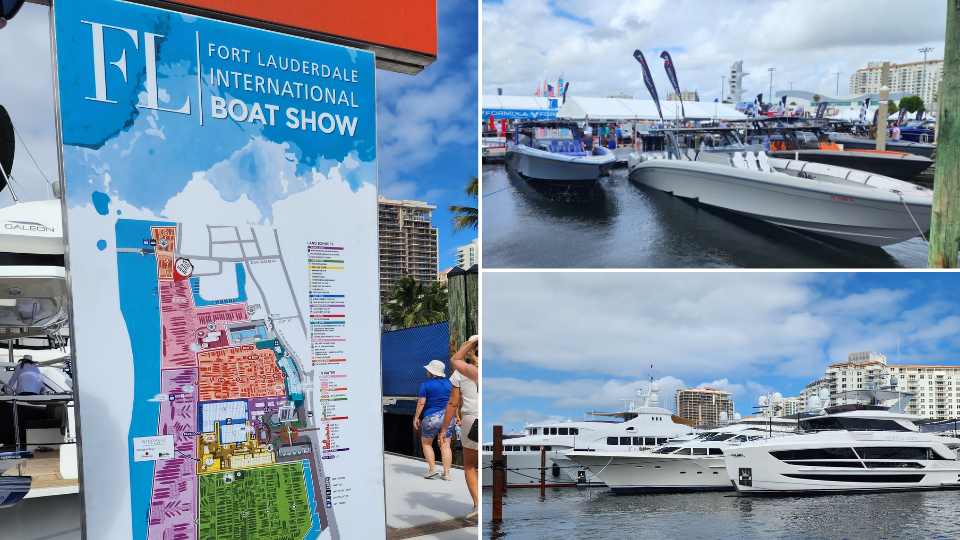
Living in Fort Lauderdale
Fort Lauderdale combines the appeal of a vibrant city life with the leisure of a coastal environment, leading to a unique living experience. From the cost of amenities to the variety of housing options, this section provides key insights into what life is like in Fort Lauderdale.
Residential Neighborhoods
Fort Lauderdale is home to a medley of neighborhoods, each with its distinct character. Victoria Park stands out with its historic charm and a blend of modern amenities. It is centrally located, making it a desirable location for residents seeking a blend of old Florida allure with contemporary living. Other notable neighborhoods include Las Olas for its upscale dining and shopping, and River Oaks for its more family-friendly atmosphere.
Cost of Living
The cost of living in Fort Lauderdale is shaped by several factors, including housing, transportation, and goods and services. While residents can expect to spend a significant portion of their income on housing, other expenses such as utilities and groceries can be more affordable compared to other cities. On average, Fort Lauderdale ranks as the 11th most expensive rental city in the United States, with housing costs being a primary consideration.
Housing Market
Fort Lauderdale’s housing market is diverse, catering to a range of preferences and budgets. One-bedroom apartments average around $2,000 per month, while buyers have options ranging from beachfront condos to suburban single-family homes. The city’s growth, particularly in the downtown area, has seen a rise in high-rise condos, offering luxury living with amenities such as pools, fitness centers, and concierge services.
| Type of Housing | Average Cost |
|---|---|
| One-bedroom Apartment | $1,690 per month (rent) |
| Condos | Varies – based on location & size |
| Single-family Homes | Varies – based on location & size |
Education and Healthcare
Educational facilities in Fort Lauderdale cater to all ages, with a mix of public schools, private institutions, and higher education opportunities. The presence of Broward College and satellite campuses for various universities adds to the educational fabric of the city. Healthcare is robust, with Broward Health being one of the county’s largest health systems, offering comprehensive medical services to residents across several hospitals and outpatient facilities. Access to quality healthcare is a key component of the city’s infrastructure.

Employment and Economy
Fort Lauderdale’s economy offers a promising job market, with average incomes surpassing the national figure. Key industries thrive, showcasing diverse employment opportunities, and multiple resources support both established professionals and those just starting their careers.
Job Market
The job market in Fort Lauderdale is competitive, but it caters well to individuals across various professional stages. Average individual income is estimated to be around $40,000 annually, which stands above the national average, indicating a strong local economy. The unemployment rate in the city is on par with the national average, providing a stable environment for job seekers.
Key Industries
Fort Lauderdale’s economy is bolstered by several key industries that drive employment. Tourism is a substantial economic contributor, given the city’s beaches and canals, often earning it the nickname “Venice of America”. Additionally, the marine sector, technology, manufacturing, and finance are significant fields, offering varied career paths for young professionals and experienced workers alike.
Employment Resources
Prospective and current residents have access to a range of resources when seeking employment. Local job fairs, state-operated career centers, and online job portals are valuable for networking and job hunting. For young professionals in Florida, organizations such as the Greater Fort Lauderdale Chamber of Commerce provide additional guidance and opportunities to integrate into the local economy.
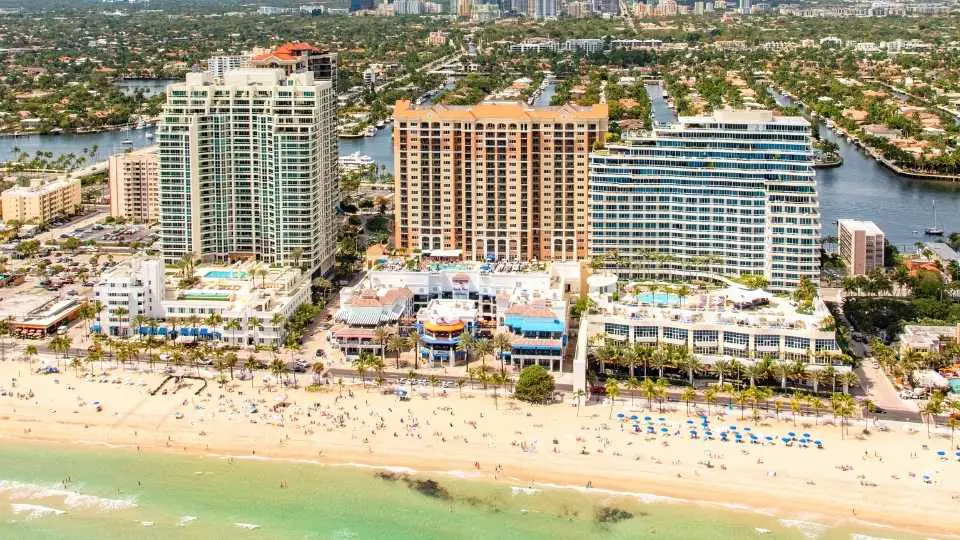
Transportation and Connectivity
Fort Lauderdale offers a robust transportation system that supports its growing population and thriving economy. This system is designed to minimize environmental impact while providing flexibility and reliability.
Local Public Transportation
Broward County Transit (BCT) is the primary public bus service, operating an extensive network throughout the county. Residents and visitors can use BCT to reach various destinations in a cost-effective manner. Meanwhile, the downtown area is served by the Sun Trolley, an affordable and convenient way to navigate the heart of the city. Fort Lauderdale also promotes waterborne travel with the Riverwalk Water Trolley traversing the New River, and the Water Taxi, providing a scenic and leisurely option along the Intracoastal Waterway.
Regional Travel Options
For inter-city travel, the Tri-Rail connects Fort Lauderdale with other cities in the South Florida metropolitan area, providing a vital link for commuters and travelers. Furthermore, the city is serviced by Amtrak, offering long-distance train services to destinations beyond the region. The Fort Lauderdale-Hollywood International Airport enhances the city’s connectivity with domestic and international flights.
The Brightline high-speed rail service connects South Florida to Orlando and has a stop in downtown Fort Lauderdale.
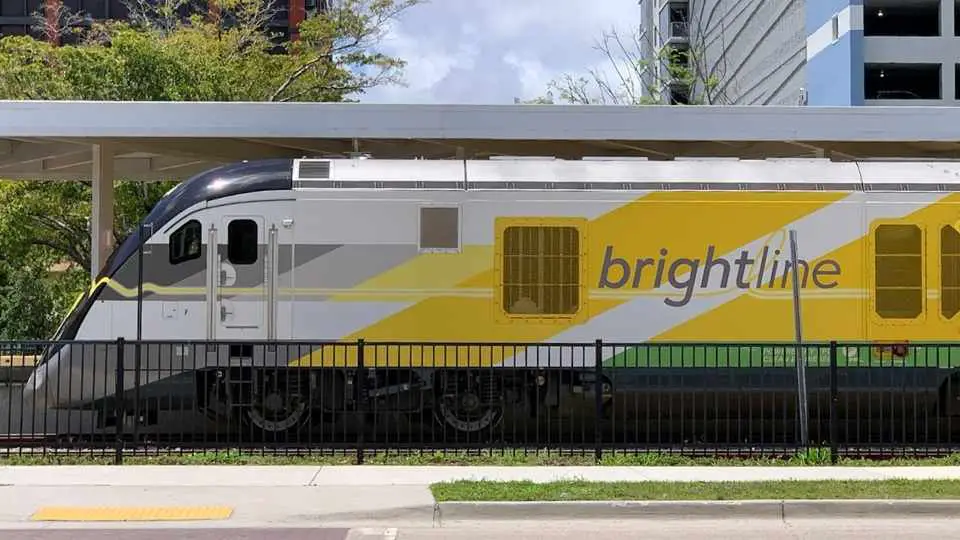
Leisure and Recreation
Fort Lauderdale offers a vibrant tapestry of leisure options, granting residents and visitors alike access to beautiful beaches, a rich arts and culture scene, diverse dining opportunities, and varied sports and outdoor activities.
Beaches and Parks
Fort Lauderdale is synonymous with its expansive Atlantic coastline and pristine beaches. Lauderdale Beach is particularly notable for its golden sands and turquoise waters. The city’s park system also provides ample green spaces, including Hugh Taylor Birch State Park which offers a quiet retreat from the city buzz.
- Central Beach: A hub for sunbathing, swimming, and water sports.
- Riverwalk Park: A downtown oasis along the New River with walking paths and picnic spots.
Arts and Entertainment
The city’s arts and culture scene flourishes with numerous venues for performing arts, galleries, and live music. The Museum of Discovery and Science is a centerpiece attraction, especially for families.
- Broward Center for the Performing Arts: Hosts Broadway shows, concerts, and dance performances.
- NSU Art Museum: Features significant collections of contemporary and modern art.
Shopping and Dining
Las Olas Boulevard is the heart of Fort Lauderdale’s shopping and dining, offering a range of high-end boutiques and acclaimed restaurants.
- Restaurants: Serve an array of international cuisines with fresh, local seafood being a staple.
- Shopping: From designer stores to local art shops, Las Olas caters to all shopping enthusiasts.
Sports and Outdoor Activities
Fort Lauderdale’s agreeable climate lends itself to a wide range of outdoor and sports activities. Golf courses, tennis courts, and water sports facilities are readily available for enthusiasts.
- Outdoor Activities: Include boating, fishing, and hiking trails in local parks.
- Sports: Year-round options available for both spectating and participating in various sports.

Real Estate Insights
Fort Lauderdale offers varied housing options, from waterfront homes to inland condos. Affordability couples with a rich mix of architectural styles to suit diverse preferences and lifestyles. Whether buying or renting, prospective residents find a market that balances South Florida charm with economic practicality.
Buying a Home
The Fort Lauderdale real estate scene is diverse, boasting a mix of single-family homes and condominiums. Median sale prices reflect the city’s desirability, with single-family homes around $640,000 and condominiums averaging $450,000. Waterfront homes fetch premium prices, appealing to boaters and beach enthusiasts. Buyers need to act reasonably promptly as homes tend to sell within 60 days on the market.
Renting
Renters in Fort Lauderdale encounter a competitive market. The average rent for a one-bedroom apartment stands at around $1,800 per month, positioning the city as one of the more expensive rental markets. Rental costs can vary significantly based on location, with proximity to beaches and downtown areas commanding higher prices. Renters should budget accordingly for high-demand areas.
Property Taxes and Utilities
Homeowners should be aware of property tax rates and utility costs, which are pivotal to understanding the long-term cost of owning real estate in Fort Lauderdale. The city’s property tax rates are in line with other urban areas in Florida. Residential utility costs can vary, with factors such as home size and usage playing roles. Prospective buyers should note that estate taxes in Florida are favorable, as there is no state-imposed estate tax.
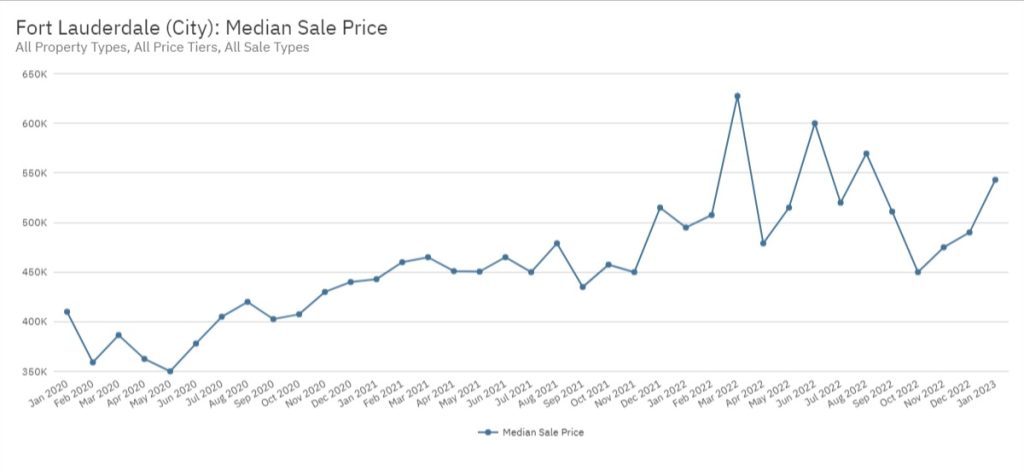
Community and Lifestyle
Fort Lauderdale is a city known for its vibrant atmosphere and diverse communities. The region offers an array of neighborhoods catering to a variety of lifestyles, from family-friendly areas to cultural hotspots.
Demographics and Diversity
Fort Lauderdale prides itself on its cultural diversity, with a melting pot of ethnicities and lifestyles. Neighborhoods such as Wilton Manors are known for their inclusivity, creating a welcoming atmosphere for all. The city’s demographic spread includes families, retirees, and young professionals, making it a microcosm of South Florida’s diverse population.
Local Events and Festivals
Residents enjoy a calendar filled with local events and festivals celebrating the city’s diverse culture and community spirit. From beachfront music festivals to art fairs and food markets, there’s always an event to engage the locals and foster a sense of community.
- Fort Lauderdale International Boat Show: A significant event showcasing the city’s nautical lifestyle.
- Family-Friendly: Many events are designed to be enjoyed by the whole family, reflecting the city’s inclusive nature.
Social and Community Services
The city provides numerous social and community services aimed at enhancing the quality of life for its residents. Families in Fort Lauderdale have access to quality educational resources, healthcare facilities, and community support programs.
- Family Services: Programs focused on health, education, and welfare support the community’s needs.
- Public Spaces: Parks and recreational areas are well-maintained, fostering family-friendly environments.

Challenges and Considerations
When considering a move to Fort Lauderdale, one must weigh various challenges and considerations, from weather-related issues to the impacts of bustling tourist seasons. These factors can notably influence the quality of life.
Weather-Related Concerns
Fort Lauderdale’s climate is typically warm and sunny, boasting an average of 246 sunny days per year. However, it is important for residents to prepare for:
- Hurricanes: The city is susceptible to hurricanes, mainly during the season from June to November.
- Heat and Humidity: The summer months can bring temperatures averaging in the high 80s to low 90s, with high humidity levels.
Navigating Tourist Seasons
Fort Lauderdale is a popular tourist destination, which affects residents in several ways:
- Crowds: Significant increases in tourist numbers can lead to crowded beaches and public areas, especially during peak seasons.
- Living Costs: The influx of visitors can drive up prices for food, groceries, and entertainment, with a cost of living 37% higher than the U.S. average.
Life Quality Pros and Cons
The quality of life in Fort Lauderdale has many facets:
Pros:
- Pleasant weather for most of the year.
- Proximity to beaches and outdoor activities.
Cons:
- Higher cost of living, with average home prices around $500,000.
- Elevated prices and living expenses during tourist peaks.

Are you interested in owning a home in Florida?
If the allure of sun-kissed beaches, vibrant communities, and year-round warmth speaks to your heart, owning a home in Florida might just be your next great adventure!
To assist our audience with buying or selling a vacation property, Endless Summer has affiliated with Quantum Realty Advisors, Inc. (“Quantum”) which is a licensed Florida real estate company that has been in business since 1998. Whether you’re dreaming of a cozy beachfront bungalow, a sprawling estate nestled against the backdrop of palm trees, or a chic urban condo in the heart of a bustling city, Quantum will help make that dream a reality.
From less than $500,000 to more than $5 million, the Quantum team will be happy to assist with your vacation home buying process and can be reached at 561.584.8555.
Quantum Realty Advisors, Inc.
4440 PGA Boulevard, Suite 308 | Palm Beach Gardens, FL 33410
561.584.8555

Quantum’s experienced real estate advisors will take the time to discuss exactly what your are looking for in a vacation home as well your what will fit into you budget. And when you are ready to begin, they will be with you every step of the way. Click here to learn more about Quantum.

